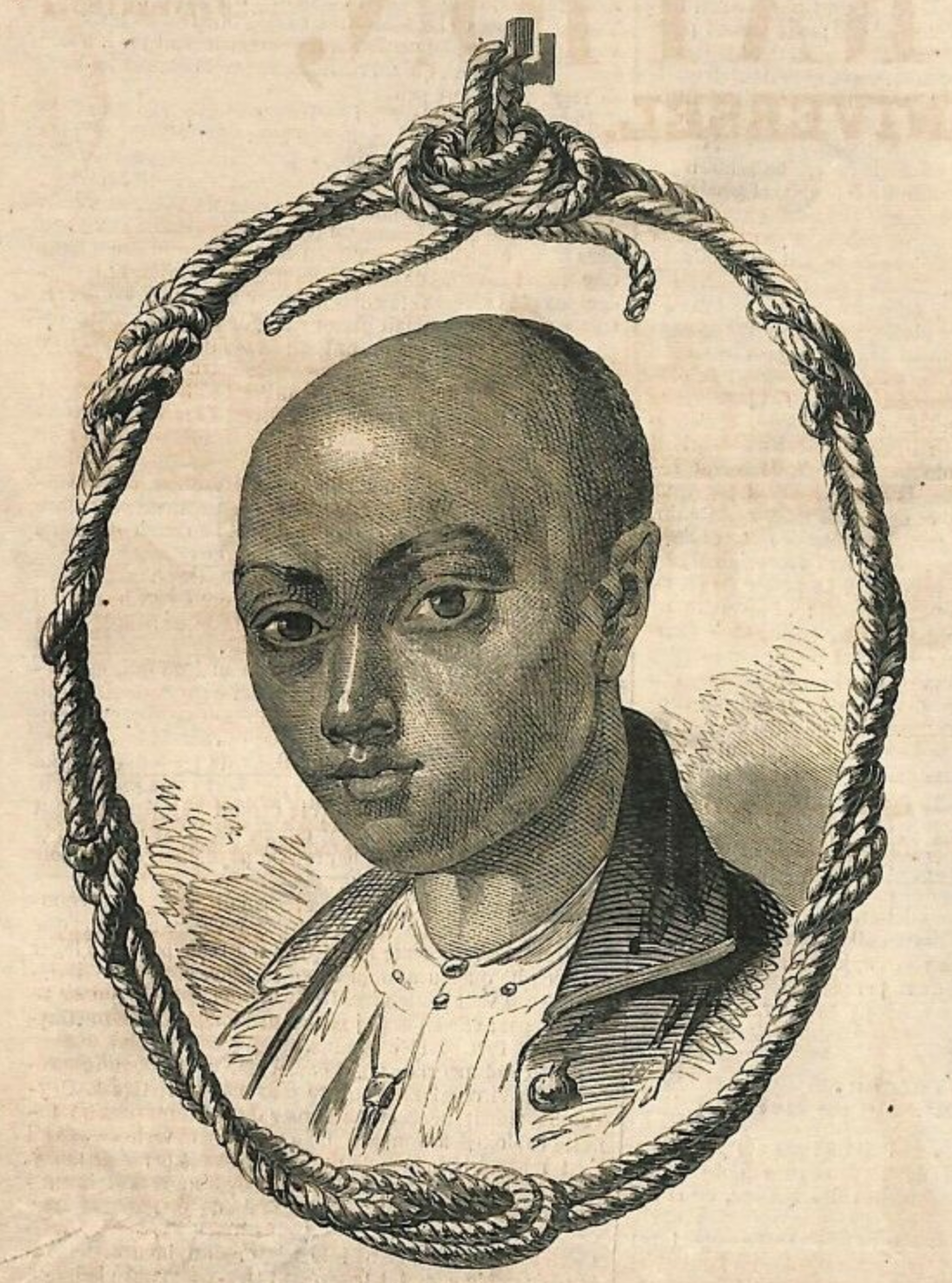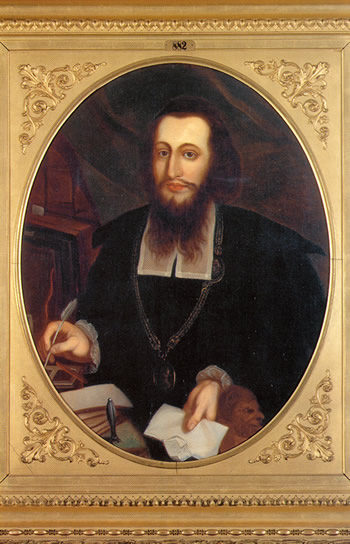|
Loa Sek Hie
Loa Sek Hie Sia (born in Batavia in 1898 - died in The Hague in 1965) was a colonial Indonesian politician, parliamentarian and the founding ''Voorzitter'' or chairman of the controversial, ethnic-Chinese self-defense force Pao An Tui (1946 - 1949). He was a ''Peranakan'' of Chinese-Indonesian, Austrian and Javanese descent. In his political career, he campaigned against racial discrimination and demanded better healthcare and education for ethnic Chinese in the Dutch East Indies. History Family and education Loa was born in Pasar Baru, Batavia in 1898 into one of the city's most prominent families, part of the 'Cabang Atas' or ''Peranakan'' Chinese gentry of Java. His grandfather was the tycoon Loa Po Seng, oJalan Posengin Pasar Baru, while his father, Loa Tiang Hoei, served as ''Kapitein der Chinezen'' of Pasar Baru. This was a civil government appointment with legal and political authority over the local Chinese community. Loa's mother, Louise Goldman, came from an Indo-E ... [...More Info...] [...Related Items...] OR: [Wikipedia] [Google] [Baidu] |
Batavia, Dutch East Indies
Batavia was the capital of the Dutch East Indies. The area corresponds to present-day Jakarta, Indonesia. Batavia can refer to the city proper or its suburbs and hinterland, the Ommelanden, which included the much-larger area of the Residency of Batavia in the present-day Indonesian provinces of Jakarta, Banten and West Java. The founding of Batavia by the Dutch in 1619, on the site of the ruins of Jayakarta, led to the establishment of a Dutch colony; Batavia became the center of the Dutch East India Company's trading network in Asia. Monopolies on local produce were augmented by non-indigenous cash crops. To safeguard their commercial interests, the company and the colonial administration absorbed surrounding territory. Batavia is on the north coast of Java, in a sheltered bay, on a land of marshland and hills crisscrossed with canals. The city had two centers: Oud Batavia (the oldest part of the city) and the relatively-newer city, on higher ground to the south. ... [...More Info...] [...Related Items...] OR: [Wikipedia] [Google] [Baidu] |
Chinese-Indonesian
Chinese Indonesians ( id, Orang Tionghoa Indonesia) and colloquially Chindo or just Tionghoa are Indonesians whose ancestors arrived from China at some stage in the last eight centuries. Chinese people and their Indonesian descendants have lived in the Indonesian archipelago since at least the 13th century. Many came initially as sojourners (temporary residents), intending to return home in their old age. Some, however, stayed in the region as economic migrants. Their population grew rapidly during the colonial period when workers were contracted from their home provinces in Southern China. Discrimination against Chinese Indonesians has occurred since the start of Dutch colonialism in the region, although government policies implemented since 1998 have attempted to redress this. Resentment of ethnic Chinese economic aptitude grew in the 1950s as Native Indonesian merchants felt they could not remain competitive. In some cases, government action propagated the stereotype that ... [...More Info...] [...Related Items...] OR: [Wikipedia] [Google] [Baidu] |
Landheer
In the Dutch East Indies (now Indonesia), a Landheer (Dutch for 'landlord'; plural, Landheeren) was the lord or owner of a ''particuliere landerij'', a private domain in a feudal system of land tenure used in parts of the colony. Dutch jurists described the legal jurisdiction of a Landheer over his domain as ‘sovereign’ and comparable to that of the rulers of indirectly-ruled princely states in the Indies. By law, the Landheer possessed ''landsheerlijke rechten'' or ''hak-hak ketuanan'' eigniorial jurisdictionover the inhabitants of his domain — jurisdiction exercised elsewhere by the central government. The Landheer's country seat on his domain was called a '' Landhuis'' or ''Rumah Kongsi''. In this context, 'Kongsi' meant 'Lord' or 'his Lordship', and was a title used by the Chinese Landheeren, who were invariably scions of the Cabang Atas gentry. Legal and political jurisdiction The legal and political jurisdiction of a Landheer was regulated by a mixture of laws and c ... [...More Info...] [...Related Items...] OR: [Wikipedia] [Google] [Baidu] |
Tan Liok Tiauw
Tan Liok Tiauw Sia (1872 - 1947) was a prominent Chinese-Indonesian landowner, planter and industrial pioneer in the late colonial period, best known today as the last ''Landheer'' (or landlord) of Batoe-Tjepper, now the district of Batuceper. History Family background Born in Tangerang, Dutch East Indies in 1872, Tan hailed from a family of landlords and Chinese officers, part of the 'Cabang Atas' or the Chinese gentry of colonial Indonesia. The Chinese officership was a high-ranking government position in the civil bureaucracy of the Dutch East Indies, consisting of the ranks of ''Majoor, Kapitein'' and ''Luitenant der Chinezen''. His father, Tan Tiang Po, served as Luitenant der Chinezen in Tangerang from 1877 until 1885, while his grandfather, Luitenant Tan Kang Soey, sat on the Chinese Council (Dutch: 'Chinese Raad'; Hokkien: 'Kong Koan') of Batavia or modern-day Jakarta, capital of Indonesia. Tan's paternal great-grandfather was the tycoon Tan Leng (died in 1852), ... [...More Info...] [...Related Items...] OR: [Wikipedia] [Google] [Baidu] |
Europeesche Lagere School
Europeesche Lagere School (ELS) was a European elementary school system in what was then the Dutch East Indies during colonial rule. The schools were intended primarily for Europeans. The implementation of basic education at that time was differentiated between basic education for European children and indigenous children, so there was a primary school for a European child (''Lager Onderwijs en Lagere School voor Europeanen'') and an elementary school for native and foreign Eastern children attending the ELS. Although special requirements were established, in 1902 the name Europeesche Lagere Scholen was used for European children's primary schools. It means to eliminate the impression that this school is solely for Europeans. Having been established for the first time in Weltevreden (Jatinegara), the ELS was growing more and more in number. In 1820 there were only seven schools, and in 1845 there were 24 schools. Then, the number of schools grew up to 68 in 1868, until finally ... [...More Info...] [...Related Items...] OR: [Wikipedia] [Google] [Baidu] |
Sia (title)
Sia () was a hereditary title of Chinese origin, used mostly in colonial Indonesia. It was borne by the descendants of Chinese officers, who were high-ranking, Chinese civil bureaucrats in the Dutch colonial government, bearing the ranks of ''Majoor, Kapitein'' or ''Luitenant der Chinezen'' (see: ''Kapitan Cina''). History As with other Chinese honorifics, the title 'Sia' came at the end of the title holder's name: for example, as in Oey Tamba ''Sia'' (1827 - 1856). The title was used not with its holder's surname, but with his given name, so ''Tamba Sia'' instead of ''Oey Sia''. In everyday speech, use of the title was often combined with other honorifics, such as ''Ako Sia'' ('elder brother Sia') or '' Baba Sia'' ('sir Sia'). Originally, the honorific was used in Imperial China to address certain senior mandarins, the relatives of a mandarin or descendants of the House of Koxinga, formerly the ruling dynasty of the Kingdom of Tungning. In colonial Indonesia, the honorifi ... [...More Info...] [...Related Items...] OR: [Wikipedia] [Google] [Baidu] |
Tio Tek Ho
Tio Tek Ho, 4th Majoor der Chinezen (; 1857 - 1908) was a Chinese-Indonesian bureaucrat who served as the fourth and penultimate '' Majoor der Chinezen'' or Chinese headman of Batavia, now Jakarta, capital of Indonesia. This was the most senior position in the Chinese officership, which constituted the Chinese arm of the civil bureaucracy in the Dutch East Indies. As Majoor, Tio was also the '' ex officio'' Chairman of the Chinese Council of Batavia (Dutch: ''Chinese Raad''; Bahasa Indonesia: ''Kong Koan''), the city's highest Chinese government body. Tio's tenure saw the founding of the influential, reformist Confucian organisation Tiong Hoa Hwee Koan in 1900, with which he had an uneasy relationship despite officially extending his mayoral patronage to the group. This was part of a broader modernising movement in the local Chinese community, which questioned the role of the traditional Chinese leadership and institutions in colonial Indonesia. Family background and busine ... [...More Info...] [...Related Items...] OR: [Wikipedia] [Google] [Baidu] |
Austrian Jews
The history of the Jews in Austria probably begins with the exodus of Jews from Judea under Roman occupation. Over the course of many centuries, the political status of the community rose and fell many times: during certain periods, the Jewish community prospered and enjoyed political equality, and during other periods it suffered pogroms, deportations to concentration camps and mass murder, and antisemitism. The Holocaust drastically reduced the Jewish community in Austria and only 8,140 Jews remained in Austria according to the 2001 census, though other estimates place the current figure at 9,000, 15,000, or 20,000 people, if accounting for those of mixed descent. Antiquity Jews have been in Austria since at least the 3rd century CE. In 2008 a team of archeologists discovered a third-century CE amulet in the form of a gold scroll with the words of the Jewish prayer Shema Yisrael (Hear, O Israel! The Lord is our God, the Lord is one) inscribed on it in the grave of a Jewish ... [...More Info...] [...Related Items...] OR: [Wikipedia] [Google] [Baidu] |
Indo People
The Indo people ( nl, Indische Nederlanders, or Indos) are Eurasian people living in or connected with Indonesia. In its narrowest sense, the term refers to people in the former Dutch East Indies who held European legal status but were of mixed Dutch and indigenous Indonesian descent as well as their descendants today. In the broadest sense, an Indo is anyone of mixed European and Indonesian descent. Indos are associated with colonial culture of the former Dutch East Indies, a Dutch colony in Southeast Asia and a predecessor to modern Indonesia after its proclamation of independence shortly after World War II. The term was used to describe people acknowledged to be of mixed Dutch and Indonesian descent, or it was a term used in the Dutch East Indies to apply to Europeans who had partial Asian ancestry. "Indos–people of Dutch descent who stayed in the new republic Indonesia after it gained independence, or who emigrated to Indonesia after 1949–are called 'Dutch-Indon ... [...More Info...] [...Related Items...] OR: [Wikipedia] [Google] [Baidu] |
Kapitan Cina
Kapitan Cina, also spelled Kapitan China or Capitan China ( en, Captain of the Chinese; ; nl, Kapitein der Chinezen), was a high-ranking government position in the civil administration of colonial Indonesia, Malaysia, Singapore, Borneo and the Philippines. Office holders exercised varying degrees of power and influence: from near-sovereign political and legal jurisdiction over local Chinese communities, to ceremonial precedence for community leaders. Corresponding posts existed for other ethnic groups, such as Kapitan Arab and Kapitan Keling for the local Arab and Indian communities respectively. Pre-colonial origin The origin of the office, under various different native titles, goes back to court positions in the precolonial states of Southeast Asia, such as the Sultanates of Malacca in the Malay peninsula, the Sultanate of Banten in Java, and the Kingdom of Siam in mainland Southeast Asia.Ooi, Keat Gin. ''Southeast Asia: A Historical Encyclopedia, From Angkor Wat to Ea ... [...More Info...] [...Related Items...] OR: [Wikipedia] [Google] [Baidu] |
Cabang Atas
The Cabang Atas (''Van Ophuijsen Spelling System'': Tjabang Atas) — literally 'highest branch' in Indonesian language, Indonesian — was the traditional Chinese establishment or gentry of Dutch East Indies, colonial Indonesia. They were the families and descendants of the Kapitan Cina, Chinese officers, high-ranking colonial civil bureaucrats with the ranks of ''Majoor'', ''Kapitein'' and ''Luitenant der Chinezen''. They were referred to as the baba bangsawan [‘Chinese gentry’] in Indonesian, and the ba-poco in Java Hokkien. As a privileged social class, they exerted a powerful influence on the political, economic and social life of pre-revolutionary Indonesia, in particular on its Chinese Indonesians, local Chinese community. Their institutional control of the Chinese officership declined with the colonial Dutch Ethical Policy, Ethical Policy of the early twentieth century, but their political, economic and social influence lasted until the Indonesian revolution (1945-1950 ... [...More Info...] [...Related Items...] OR: [Wikipedia] [Google] [Baidu] |


_en_Tek_Hwa_Seng_bij_Poeloe_Samboe_TMnr_10010680.jpg)







